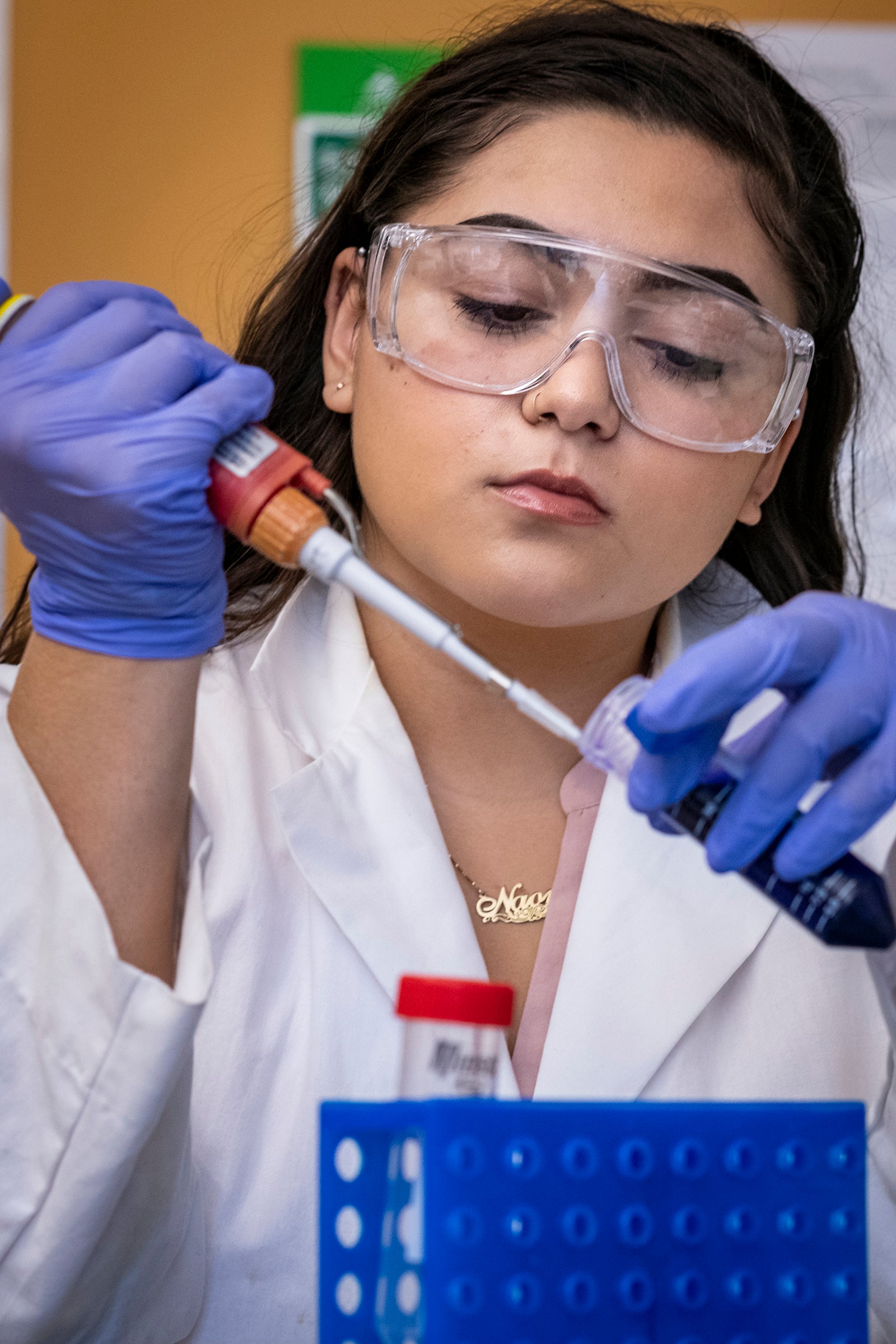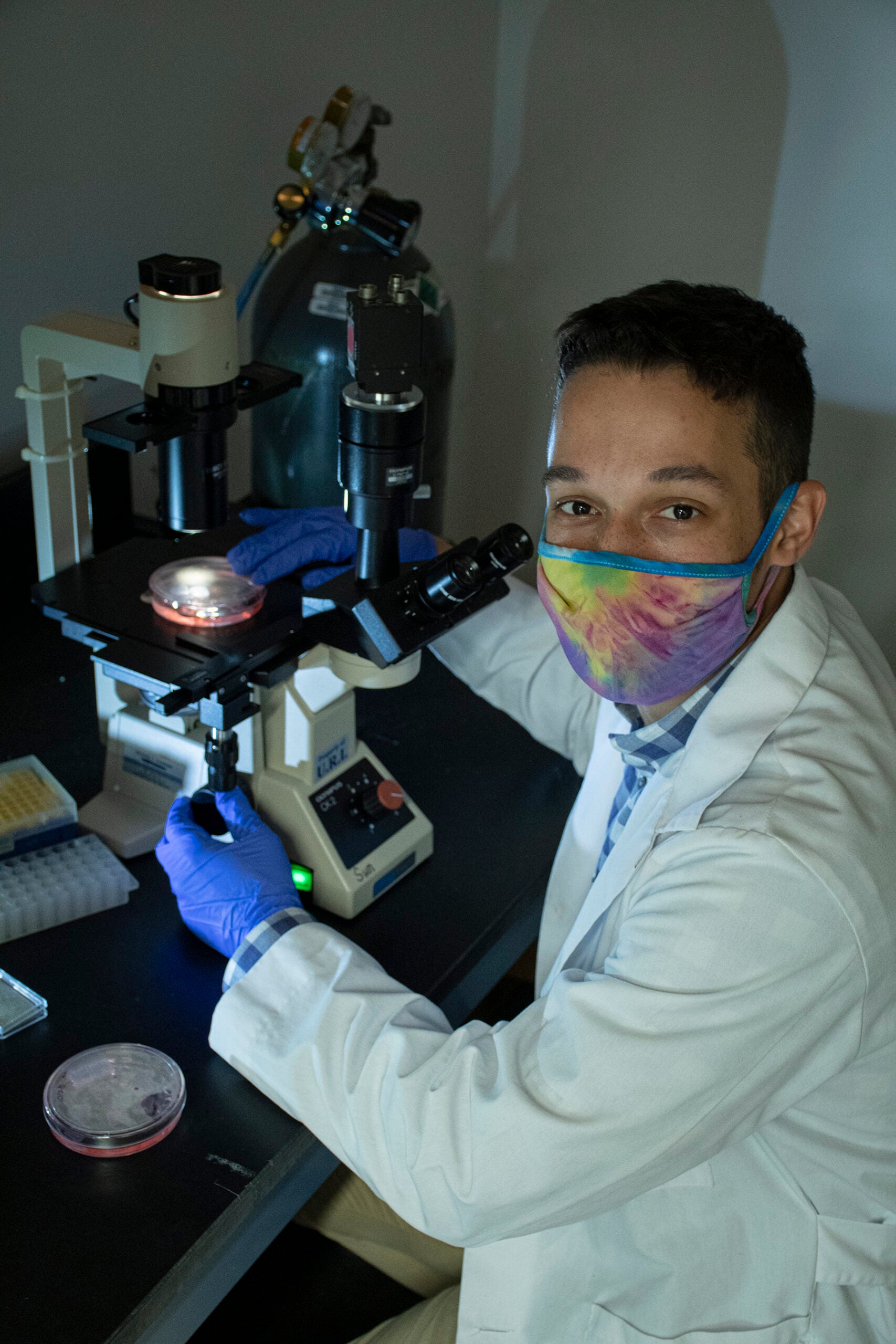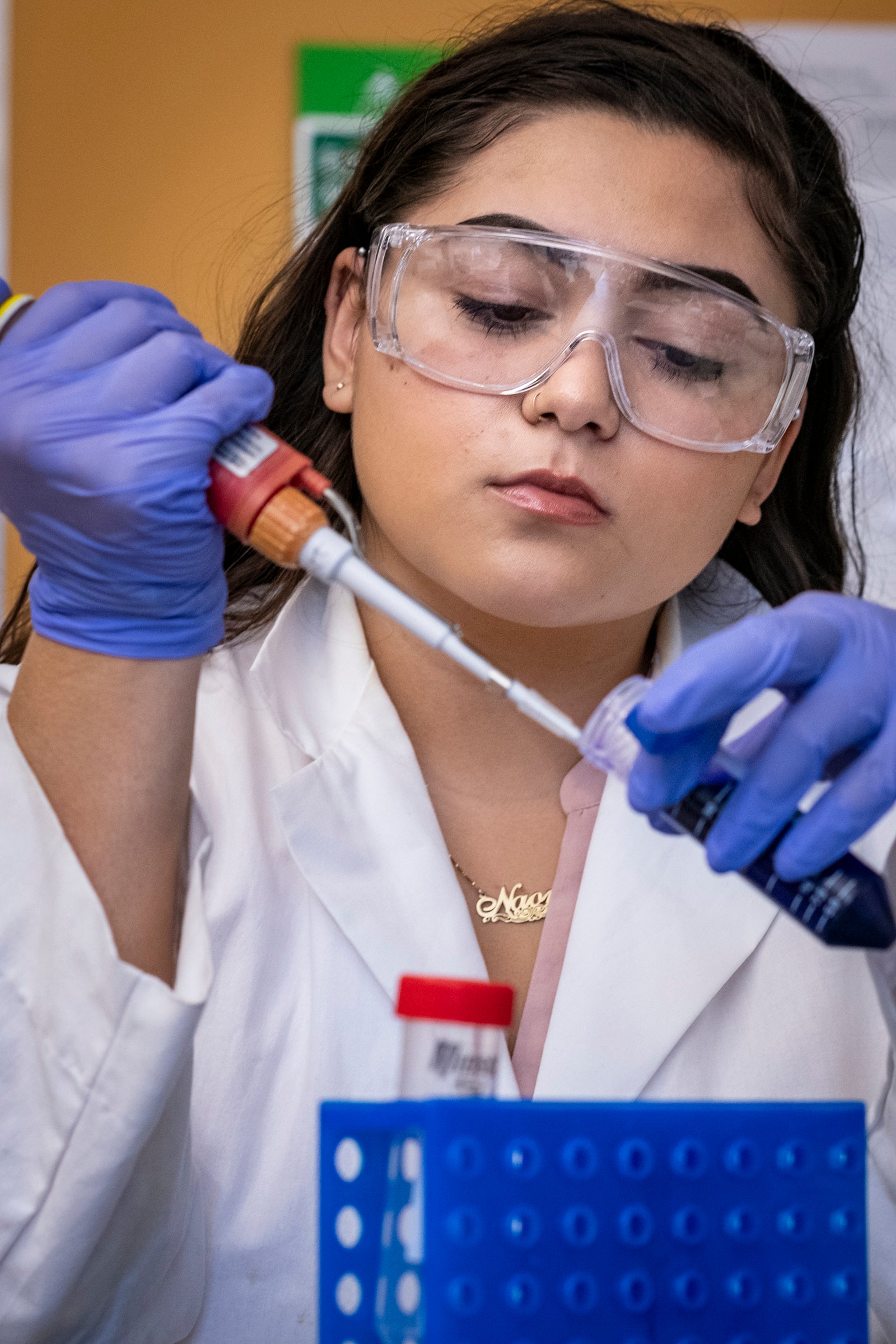KINGSTON, R.I. – November 9, 2020 – University of Rhode Island senior Naomi Pajarillo never imagined herself earning a doctorate when she first enrolled at the University three years ago. But thanks to some excellent mentors, hands-on research opportunities, and a new program designed to boost access to scientific research careers among under-represented populations, she is well on her way.

“I don’t see a lot of people that look like me among science researchers,” said Pajarillo, a cell and molecular biology major from Providence, “so I was facing imposter syndrome. I wasn’t sure if I belonged here.”
Now she knows she does. She spent the summer after her freshman year studying the diseases transmitted by mosquitoes with Assistant Professor Janelle Couret, and followed that up with a year of research into the pathogenic effects of a disease that kills oysters with Professor David Nelson. Along the way she learned the skills necessary to succeed in a microbiology laboratory.
Pajarillo was then selected to be among the first four students in URI’s new training program, funded by the National Institutes of Health, aimed at increasing the number of under-represented students earning doctorates in biomedical science. Called the MARC U*STAR program – Maximizing Access to Research Careers: Undergraduate Student Training in Academic Research – it places students in research laboratories for two years and offers them summer research internships at prestigious universities around the country.
URI senior Avery McNamara is also among the MARC U*STAR trainees, and he, too, faced imposter syndrome when he first arrived on campus. He had the added difficulty of homelessness prior to arriving on campus.
“I wanted to be on a pre-med track, and I always excelled academically, but then life happened and I had to make some sacrifices,” said the Pawtucket native double-majoring in Spanish and cell and molecular biology. “My college path was derailed because I had to work three jobs to support myself.”

URI photo by Nora Lewis
When he eventually arrived at URI, McNamara soon found himself the vice president of the pre-med fraternity, Delta Epsilon Mu, and helping a teaching assistant with some laboratory research.
“Then Dr. Nelson sold me on the Ph.D. path, and all the pieces started coming together,” he said.
Thanks to the MARC U*STAR program, McNamara and Pajarillo are among four URI students receiving $10,000 scholarships and $13,000 stipends for two years, plus additional funds for research materials and travel to conferences. In return, they are working 10 to 15 hours each week in biomedical research labs while attending classes.
Pajarillo is working in Professor Angela Slitt’s pharmacology lab, where she is studying metabolic diseases and the effects of environmental chemicals on the liver and other tissues. McNamara is working in Assistant Professor Arnob Dutta’s molecular biology lab, where he uses biochemistry and genomics to investigate the role of proteins called chromatin modifiers in the development of human diseases.
Last summer they also participated in research internships at other universities – held virtually due to the pandemic – to gain additional experience and network with prominent scientists and fellow minority students.
McNamara worked with a behavioral psychologist at Johns Hopkins University – where he hopes to go to graduate school – analyzing patient data to determine the success of various therapies used to treat those with intractable mental disorders.
“I learned that being involved in research doesn’t always mean being in a lab,” he said. “It just means being curious, being hungry for knowledge, and being open to intellectual challenges. And I met some amazing people doing interesting work that I could be a part of one day.”
Pajarillo conducted statistical analyses for a Michigan State University study to determine whether males and females with asthma respond differently to certain allergens in their respiratory system.
“It was a nice blend of my passions for biomedical science and intersectional issues in science,” she said. “It was challenging, and I was a little scared to go into it at first, but by the end I found it really rewarding. I loved the connections I made, and I loved the learning.”
Both students are planning careers as research scientists in academia.
The NIH grant that funds the MARC U*STAR program was awarded to URI Associate Professor Bryan Dewsbury in the Department of Biological Sciences and Professor Niall Howlett in the Department of Cell and Molecular Biology. It is the first training grant awarded by the NIH to the University, and Dewsbury and Howlett hope it will open the door to additional grants that will help them build a vibrant, inclusive and sustainable culture of undergraduate research on campus.

